Top 10 Liver Transplant Hospitals in India
Liver disease is a common yet serious medical condition that often becomes life-threatening for patients. Organ transplantation surgery, one of the best medical advancements of this era, provides a hope for a better life to a plethora of people worldwide.
Liver transplant is the second most commonly performed organ transplant after kidney transplant surgery. It is often the only long-term treatment for patients with end-stage liver failure and chronic cirrhosis.
India is at the forefront of liver transplant surgery programs in the world, led by internationally acclaimed and awarded surgeons. According to a 2016 study, the success rate of liver transplants in India is as high as 95% with less incidence of vascular and biliary complications.
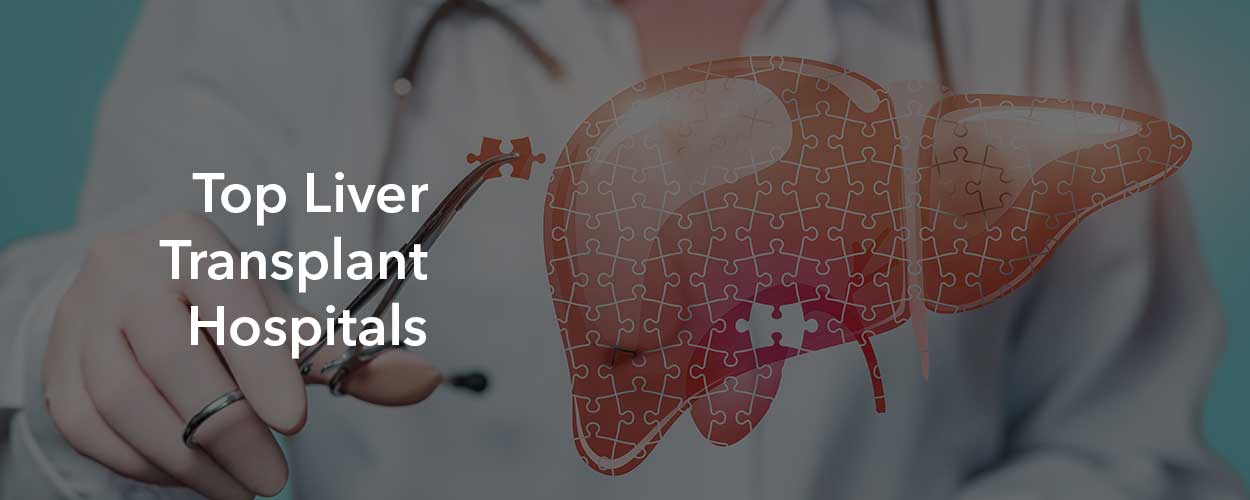
The liver is vital and also the largest internal organ of the body. It is located on the right side of the abdomen, below the diaphragm. The liver performs several key functions in the body including:
- Helps filter and remove toxic materials such as by-products of some medicines from the body
- Metabolizes nutrients to provide energy to the body
- Involved in prevention or fighting viruses and infections
- Makes blood-clotting factors
- Produces proteins and regulates sex hormones
- Maintains cholesterol levels
- Stores vitamin and mineral supplies in the body to prevent shortage
- Produces bile, required for digestion of fat and absorption of vitamins A, D, E, and K
In liver failure or cirrhosis, all the above listed vital functions of the body are affected. When the damage to liver reaches a critical stage, liver transplant is the only successful and effective treatment to improve chances of survival in a patient.
Liver transplantation is a surgical procedure to remove the diseased liver and replace it with a healthy liver from a donor. For the transplant, the whole liver from a deceased person or a portion of liver from a living (matched) person is taken.
This is possible due to the unique ability of the liver to regenerate itself. Almost 70 percent of the liver can be safely removed from a healthy individual for a transplant, without causing any medical concerns or inconvenience to the donor.
The parts of the liver in both the recipient as well as donor grow to form normal size organ and resume all the functions of a healthy liver. It may take a week, or at times about 3–4 weeks for the liver to re-establish its former size.
Patient Testimonial: Shakila Khan from Trinidad and Tobago got successful Liver Transplant in India
Patient Shakila khan and her daughter are sharing their experience about how Dr. Surbhi and Lyfboat’s team helped them with all the logistics in India while their stay in India.
Connect with Experts & Get a Free Personalized Quote for Liver Transplant in India
What are the types of liver transplant procedures offered by the liver transplant hospitals in India?
Different types of liver transplant programs are offered by the top hospitals in India:
1. Living Donor Liver transplant
- This transplant procedure involves removal of a portion (right or left lobe) of the donor’s healthy liver which is then transplanted into the recipient’s body.
- The surgeon makes an incision in the abdomen of the patient to remove the diseased liver and place the healthy liver. Then the donated liver is connected to the blood vessels and bile ducts of the recipient.
- After this, the incision is closed using sutures and covered with a sterile dressing.
- The transplanted liver and remaining part of the donor’s liver regenerates and performs normal liver functions in the body.
- The donor must be a close family member or relative of the patient.
- The major advantage of this procedure is the shorter waiting time, which allows the surgeon to conduct the transplant surgery before the condition of the patient worsens any further. This also contributes to the higher success rate of living donor liver transplant, along with other factors.
2. Deceased/cadaveric Donor Liver Transplant
- It is an orthotopic transplant procedure in which the whole diseased liver of the patient is removed and a donated liver from a cadaveric donor is put in its place.
- For this, the liver is harvested from a brain-dead donor who has given consent before dying. This is considered when there are no living donors for the patient or if the recipient opts for a deceased donor liver transplant.
- The patient’s name is put on a waiting list as per the Blood group. When a suitable donor is available, the hospital and transplant team are informed.
- The waiting period is usually a few months long for an Orthotopic transplant. This may not be suitable for many patients with Hepatocellular Carcinoma (liver cancer) as the long waiting time can be detrimental to the patient’s health.
3. Split Liver Transplantation
- In this type of liver transplant, the healthy liver of a deceased person is split in two sections to be transplanted in two different recipients. So, two patients are benefited by a single deceased donor liver.
- The right and left lobes of the liver from a deceased person are separated and then placed into an adult and a child respectively.
- The adult receives the larger right lobe while the smaller left lobe is transplanted to the child.
- After the surgery, the transplanted lobes quickly regenerate and grow to form a normal sized liver.
4. Auxiliary Liver Transplant
- This transplant method involves removal of the diseased portion of the patient’s liver, while the remaining part is left to regenerate.
- Auxiliary liver transplant is a partial orthotopic transplantation method in which the surgeon resects a part of the native deceased liver and attaches a partial donor liver to it.
- This provides a temporary support until the patient’s liver recovers and immunosuppression can be withdrawn.
5. Pediatric Liver Transplant
- This is a liver transplant surgery performed for children with serious liver disease.
- The most common liver disease in children that requires liver transplant treatment is biliary atresia.
- Liver cancer treatment is also the reason for need of transplant in children who will die without a new liver.
Why choose Indian hospitals for liver transplant?
India is a popular destination amongst medical travellers for a number of reasons. Liver transplant in India is at par with the best of facilities around the world.
This stands true in terms of quality of treatment, success rate, patient satisfaction, hospitality services and other factors.
Following are some of the remarkable features of the top liver transplant hospitals in India:
- High-quality patient services and facilities approved by renowned international accreditation bodies, including Joint Commission International (USA), National Accreditation Board for Hospitals and Healthcare providers, ISQua and others
- A dedicated transplant team of skilled and experienced specialists, surgeons, trained and specialized nursing staff
- Special facilities for international patients, including visa assistance, airport pick up/drop off, language interpreters, multiple modes of payments and many others
- Hassle-free priority services with no waiting time
- Cutting edge technology and the latest surgical equipment to allow the surgeon to perform an operation with high-precision and minimal surgical errors
- Patient-centric, trustworthy medical practices with high-tech automated systems for critical patient monitoring
- Modular operating theatres with advanced surgical set-up for laparoscopic surgery and other liver procedures
- Dedicated Liver ICU with ultra-clean ventilation system for minimizing the risk of infection
- Stand-alone facility for pre-surgery planning and virtual surgery for patients as well as donors in liver transplantation. This ensures safety and precision in the procedure
- Top of the line patient coordination and administrative services support
- These hospitals are located in the easily accessible cities with many options for accommodation
- Comfortable day-care and outpatient facilities for minor procedures
- Maintain follow up care after your return to home country
Lyfboat associated hospitals rank amongst the top liver transplant hospitals in India with highly successful liver transplant programs (both deceased as well as donor). These hospitals are considered to be the best in the area because:
- Specialized expertise for liver care and a vast experience of treating complex cases
- Availability of the latest medical technology and the world’s most advanced surgical techniques
- Surgery is performed by the best Liver transplant surgeons in India
A multi-disciplinary team involving transplant surgeons, hepatologists, gastroenterologists, hematologists, anesthesiologist along with nurses, dietitians, social workers and health counselors work in close association to deliver holistic care to patients and help make your liver transplant surgery in India a success.
Best Liver Transplant Hospitals in India
1. Medanta – The Medicity, Gurgaon
CH Baktawar Singh Road, Sector 38, Gurugram, Haryana – 122001
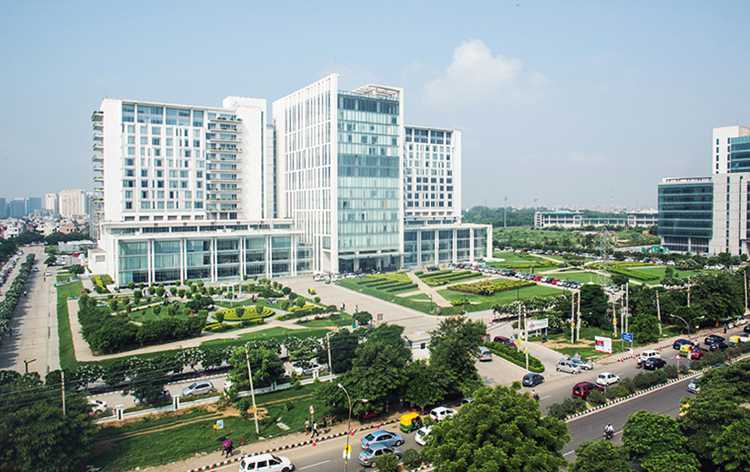
- Medanta ranks high amongst the best liver transplant hospitals in India that provide comprehensive liver care to adult and pediatric patients.
- The Institute of Liver Transplantation and Regenerative Medicine at Medanta is a first of its kind specialized facility in Asia. The team here has conducted more than 2,500 Liver Transplant surgeries.
- The institute offers one of the finest liver transplantation programs in the world and various other services for treatment of liver and biliary diseases including cancer.
- The International Patient Department provide round-the-clock assistance to patients travelling from overseas for their treatment with various services including multilingual interpreters, currency exchange, visa assistance and many more.
- A multidisciplinary team of doctors with rich experience and expertise in the medical field provide high quality treatment with a holistic and patient centric approach.
- The Institute boasts of achieving the highest success rates for liver transplant in India, i.e. 95% and the lowest infection rates, less than 10%.
Highlights:
- The largest series of successful liver transplants
- The second largest living donor liver transplant program in the world
- The largest and one of the most successful paediatric liver transplant programs in India that has experience in treating small children (with weight less than 10 kg)
- Extensive experience of transplants for patients with acute liver failure
- Have the largest experience of combined liver and kidney transplants, swap liver transplants in India
- Performed the first successful ABO-incompatible liver transplant in India and one of the largest programs for such surgeries
- A special liver donor safety program and a dedicated Transplant Support Group of previous patients and donors to guide new patients
2. Indraprastha Apollo Hospital, Delhi
Sarita Vihar, Delhi Mathura Road, New Delhi – 110076
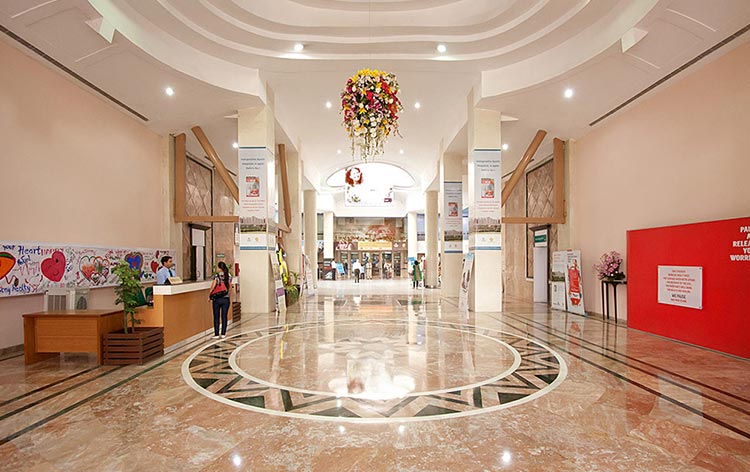
- Indraprastha Apollo is one of the foremost multi super-speciality hospitals in Delhi that offers one of the country’s best liver transplantation programs.
- The Centers for Liver Diseases and Transplantation of the Apollo Hospitals Group are state-of-the-art medical facilities equipped with the latest technology for liver surgery including laparoscopic Argon Beam Laser, Tissue Link along with other advanced techniques for liver resection like CUSA (Cavitron ultrasonic surgical aspirator) and Laparoscopic Vascular Stapling.
- Modular Operation theaters with laminar airflow and stringent infection control policies.
- Well established, 13 bedded Intensive Care Unit equipped with HEPA filters, modern patient monitoring system, managed by a trained and dedicated nursing staff.
- Radiology services- A 3.0 Tesla MRI scanner can accurately define donor biliary anatomy and a PET SUITE can accurately assess donor anatomy and liver volume.
Highlights:
- The Multi-organ Transplant Program at Indraprastha Apollo is acclaimed for performing over 250 Liver and Kidney transplants within a year (2009).
- The hospital is also renowned for its Pediatric Liver transplant programs which is one of India’s busiest and rapidly growing organ transplant programs.
- Offers the latest liver surgery technology including laparoscopic Argon Beam Laser, Tissue Link along with other advanced methods for liver resection such as CUSA (Cavitron ultrasonic surgical aspirator) and Laparoscopic Vascular Stapling.
Liver transplant procedures offered by Apollo:
- Pediatric liver transplant in India
- Adult liver transplant in India
- Cadaver liver transplant in India
- Transplant in acute liver failure in India
- Liver-kidney transplant in India
3. Max Super Speciality Hospital, Delhi
Press Enclave Road, Mandir Marg, Saket, New Delhi – 110017
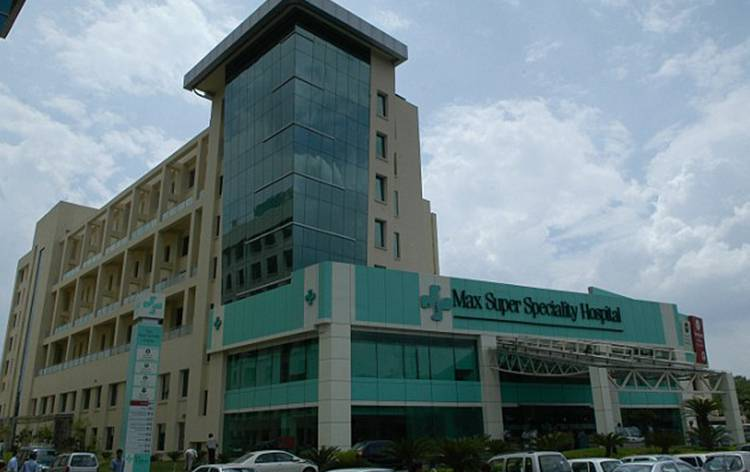
- Max Hospital is an acclaimed multi-speciality tertiary care hospitals and recognized as one of the best liver transplant hospitals in Delhi.
- The MAX Centre for Liver and Biliary Sciences is one of the busiest facilities for liver transplantation in India and a popular choice of destination for overseas patients
- Well-known for its phenomenally successful transplant outcomes, the centre has performed more than 2600 transplants with a high quality of patient safety during and post-surgery.
- The success is attributed to the highly experienced and world renowned transplant surgeons, including Dr. Subhash Gupta, one of the top liver transplant surgeons in Delhi, and their multidisciplinary team at the centre.
- Max hospital delivers a holistic and intensive care for liver failure patients with different kinds of diseases, such as chronic viral infection (Hepatitis B and C virus), liver cancer, alcoholism, fatty liver, bile duct abnormalities and others.
- The specialty centre provides 24*7 emergency services and is linked to a blood bank, pharmacy, ATM, and other important amenities that are needed for thorough patient care.
Highlights:
- Liver transplant success rate of 95% and a ten year survival rate of over 80%.
- A multidisciplinary transplant team of 200 members with over 20 years of experience
- 2000+ liver transplants
- Offers round the clock services and best post-surgery follow-up care
- Possess the most advanced technology in the world and modular operation theatres
- Dedicated and special Intensive Care Units for liver and hepato-biliary patients
4. Gleneagles Global Health City
439, Medavakkam Road, Perumbakkam, Cheran Nagar, Chennai, Tamil Nadu 600100
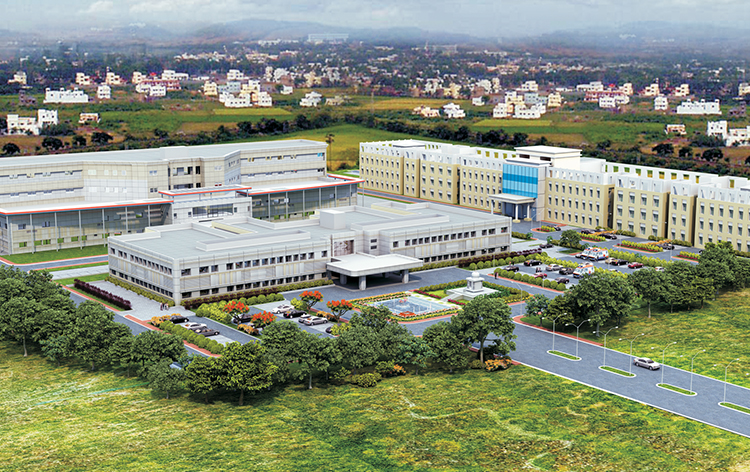
- Gleneagles Global Health City is a highly renowned medical facility and the largest hospitals of Gleneagles Global Hospitals India, one of the world’s leading healthcare groups.
- The hospital is one of the best liver transplant hospitals in Chennai and is considered as Asia’s leading and most reliable Multi-Organ Transplant Centre.
- Gleneagles Global offers a comprehensive liver transplant program and specializes in treatment for diseases of the liver and pancreas.
- Recognized as being one of the world’s most trusted, multidisciplinary disease-management centres, Gleneagles Global Hospital liver transplant centre specializes in the treatment of all liver and pancreas diseases.
- The centre houses some of the best Liver Transplant surgeons in Chennai and India who are devoted in their mission to deliver effective care to people suffering from liver diseases.
Highlights:
- Gleneagles Global Hospitals are known for performing the first Adult Swap liver transplant in India
- Performed India’s first Split liver transplant
- It is the first hospital in South India to conduct five successful organ transplants in a day
Services offered:
- Pediatric liver transplant
- Adult liver transplant
- Cadaver liver transplant
- Transplant in acute liver failure
- Combined Liver-kidney transplant
- Split liver transplant
- Auxiliary liver transplant
5. BLK Super Specialty Hospital
Pusa Rd, Radha Soami Satsang, Rajendra Place, New Delhi, Delhi 110005
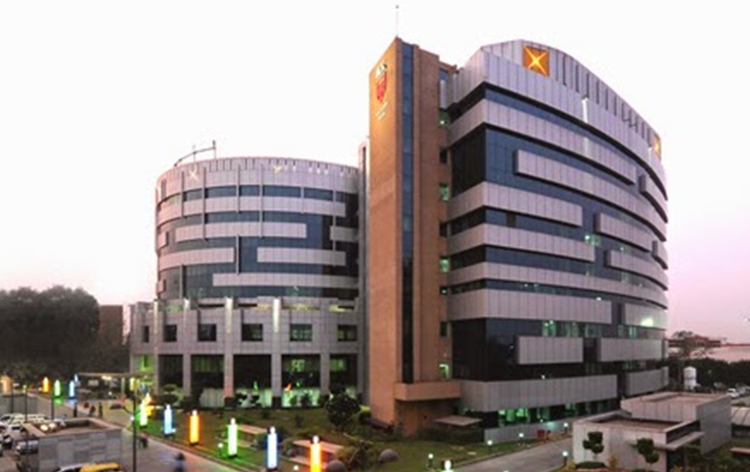
- BLK Super Specialty Hospital is a top-tier hospital in Delhi that provides world-class healthcare care services to patients from all over the world.
- Department of Liver Transplantation at BLK Hospital is one of the best facilities in the country that offers a range of services in the field of Hepato Pancreato Biliary Sciences at an affordable cost.
- A multidisciplinary team comprising of transplant surgeons, Hepatologists & Gastroenterologists, Transplant Coordinators, Specialized Nurses and many others who have extensive experience in the management of liver diseases in patients.
- The hospital is devoted in its mission to provide holistic services with patient centric approach and international guidelines.
- The hospital provides round-the-clock services and special facilities for patients who travel from abroad for their treatment at BLK hospital. The international patient service department at the hospital has a committed team to ensure personalized care for overseas patients.
Highlights:
- A successful transplant program that caters to both adult and pediatric and has performed more than 700 liver transplant procedures.
- Advanced critical care unit with 16 dedicated ICU beds with laminar flow. The team ensures a standard post-transplant care is provided to patients with a unique design for recovery after surgery.
- A successful Deceased Donor Transplant Program – BLK performed the maximum number of deceased donor organ transplants in Northern India.
Services offered:
- Living Donor Liver Transplantation
- Deceased (Cadaveric) Donor Liver Transplantation
- Pediatric Liver Transplantation
6. Columbia Asia Yeshwantpur
26/4, Brigade Gateway, Beside Metro, Malleswaram West , Bengaluru, KA, India
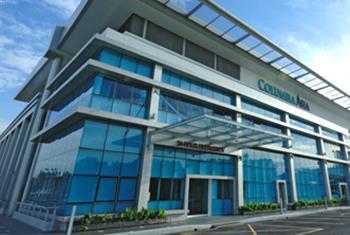
- Columbia Asia Referral Hospital, Yeshwanthpur is one of the best hospitals for liver transplant in Bangalore.
- The Liver Transplant and Hepatobiliary Surgery department at the hospital delivers high quality transplant care to patients with liver failure.
- The department provides a comprehensive range of services for treatment and management of hepatobiliary and pancreatic diseases under one roof. The doctors at Columbia Asia hospital are amongst the most experienced and skilled hepatologists and liver transplant specialists in India. They have received training in advanced techniques at the best medical centers in the world.
- The department has a rich experience of managing patients with complex liver disease and has performed a number of successful liver transplant surgeries.
- Team is backed by a trained nursing staff and technical support team to ensure all round and uncompromised care of the patients.
- The hospital has its name among one of the very few centres in India to offer living and cadaveric liver transplantation programs.
7. Fortis Memorial Research Institute, Gurgaon
Opposite HUDA City Centre, Sector 44, Gurugram, Haryana – 122002
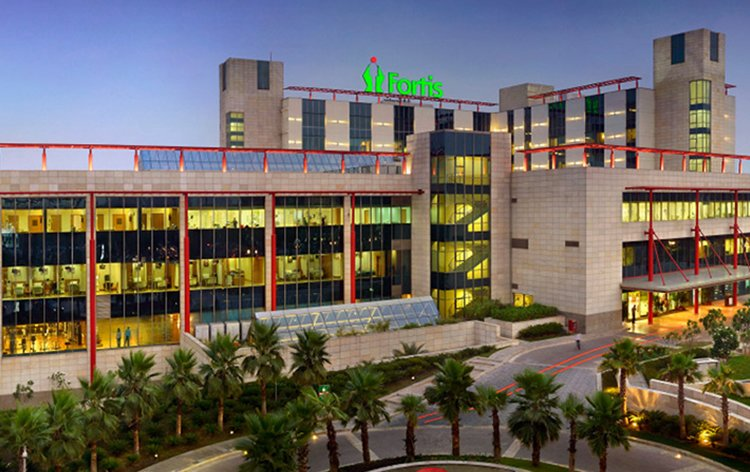
- Fortis Memorial Research Institute is one of the largest and highly recognized multi super specialty hospitals in Delhi-NCR.
- The liver transplant program at FMRI is one of the best in the country. This program offers the highest quality of care to patients with liver problems.
- The department for liver transplant provides treatment for a wide variety of liver diseases including Hepatitis C, liver cancer, and HIV. The centre boasts of excellent liver transplant survival outcomes that even tops national averages.
- Headed by one of the best liver transplant surgeons in India, Dr. Vivek Vij, the Liver Transplant Centre provides an all-round patient care, including evaluation, management, treatment and follow-up of liver transplant patients.
Highlights:
- A team of highly trained experts for liver transplant surgery India, including Dr. Vivek Vij (500 transplant surgeries). Dr. Vij along with his team has a vast experience of performing more than 2500 liver transplants with a success rate of 95% in patients and a complete 100% for donors.
- The only centre for laparoscopic-assisted Donor Hepactectomy in India
- Top of the line technical support for Liver transplant and GI Surgery
- The centre is outfitted with the latest medical advancements that are known to be the finest in the region.
- Lowest Biliary Complication rate (<4%) and comprehensive post-operative care for biliary problems
- Cost-effective liver transplant packages
Connect with Experts & Get a Free Personalized Quote for Liver Transplant in India
8. Narayana Super Speciality Hospital
Plot 3201, Block – V, DLF Phase – III, Nathupur, Sector 24 , Gurgaon, HR, India, 122002
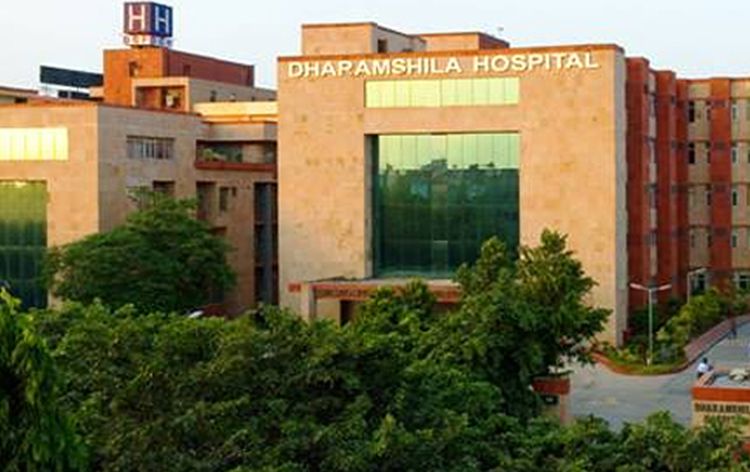
- Narayana Health is one of the most renowned medical care groups of the country. Narayana Super Speciality Hospital is one of the best liver hospitals in Delhi-NCR region.
- The department of Liver Transplant & HPB Surgery at Narayana Health provides a comprehensive range of services for patients with liver failure and diseases.
- The super-specialty centre has an excellent Liver Transplant team comprising of some of the most experienced and skilled liver transplant doctors in India. The transplant surgeons along with other different specialists and nursing staff ensure that the liver transplant patients receive effective care throughout the treatment.
- The hospital is equipped with state-of-the-art infrastructure and advanced technology to provide the best medical services to the patients.
Liver Transplant Services offered at Narayana Health:
- Orthotopic Liver transplant
- Living donor Liver transplant
- Split donation Liver transplant
- Hepatectomy
- Robot-assisted laparoscopic hepatectomy
- Combined liver and bile duct resection
- Pancreaticoduodenectomy or Whipple Procedure
- Biliary Bypass
9. Kokilaben Dhirubhai Ambani Hospital, Mumbai
Rao Saheb Achutrao Patwardhan Marg, Four Bunglows, Andheri (West), Mumbai – 400053
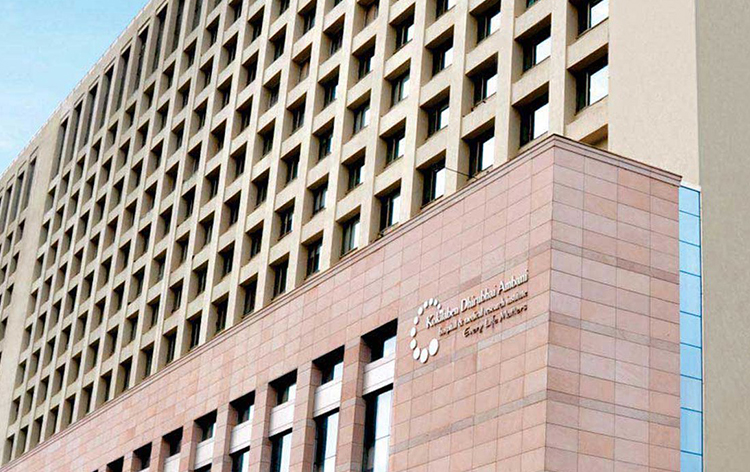
- Kokilaben Dhirubhai Ambani Hospital is one of the largest and best liver transplant hospitals in Mumbai.
- The hospital is a world-class facility that caters to a number of patients from various parts of the world and is known for its international standard facilities and services.
- Kokilaben hospital has a comprehensive liver transplant program that offers services for liver transplant from living donors as wells as cadavers.
- The dedicated Liver Transplant Operation Theatres (OT) and specialized Intensive Care Unit (ICU) for liver failure patient ensures the best possible medical care.
- The transplant centre is supported by a multidisciplinary team of specialists including transplant surgeons, hepatologists, anaesthetists, Interventional Radiologist.
- The transplant team has also empanelled Infection Control Specialists, Haematologists, Transplant Coordinators and support groups.
Highlights:
- The liver transplant program at Kokilaben Hospital is a first-of-its-kind comprehensive liver transplant centre in Western India.
- The centre provides complete care to liver transplant patients for an entire spectrum of liver disorders and cancers.
- The program is supported by a high-tech advanced infrastructure model and equipment necessary for complex surgeries.
- The Kokilaben Hospital Liver Transplant team has successfully transplanted 164 livers in the two years since its launch.
10. Global Hospital Mumbai
Dr. E. Borges Road, Hospital Avenue, Opp Shirodkar High Scholl, Parel , Mumbai, MH, India, 400012

- Global Hospital Mumbai is a renowned medical centres of the leading healthcare group, Gleneagles Global Hospitals. It is considered to be one of the best liver transplant hospitals in Mumbai, India.
- The department of Liver transplant is a dedicated specialized facility that offers a variety of options for people suffering from end-stage liver disease and liver cancer.
- The department is backed by a well established working lab providing round the clock services, radiology diagnostics and dedicated liver transplant Intensive Care Units.
- The team of experts at Global hospital provide the best in class medical care to the transplant patient. The transplant team consists of specially trained nurses, hepatologists, anesthesiologists, interventional radiologists along with high experienced transplant surgeons.
Highlights:
- A comprehensive transplantation service is offered by the hospital including various types of transplants, such as Pediatric liver transplant, orthotopic liver transplant, transplant for acute liver failure, Split liver transplant and auxiliary liver transplant.
- The facility also offers combined Liver-kidney transplants for patients in need of both organs.
- The hospital has a one of its kind liver dialysis facility which is similar to dialysis for kidney and is one of the most advanced features at Global Hospital.
At a glance:
- A liver transplant is performed to treat liver failure, and involves replacement of the diseased liver with whole or part of a healthy liver from a donor.
- Cirrhosis is the most common reason for a liver transplant.
- First successful liver transplant was performed in 1967.
- Currently, the most commonly used technique is Orthotopic liver transplantation, in which the patient’s liver is removed and replaced with the donor liver in the same anatomical location as the original liver.
- The surgical procedure may take 4 – 18 hours to complete, depending on the patient’s condition.
- The number of liver transplants in India has been steadily increasing with a high success rate in the past decade.
- Donated livers are retrieved from either a deceased donor or living donor.
- The five-year survival rate of a liver transplant is over 85%.
What preparations are required before a liver transplant?
The patients must get ready for the big surgical surgery of a liver transplant after talking with their doctor. Before having the surgery, the patient needs to be aware of the following.
- Keep in mind only positive things.
- Keep moving and go about doing regular activities.
- Focus on eating and drinking the appropriate things and stick to the diet plan that the doctor advised them.
- Keep one’s weight in check with regular exercise and nutrition management.
- Avoid alcohol.
- Give up smoking.
- Take all prescription medications as directed and on schedule.
- In the case of pregnancy, one should not undergo a liver transplant.
What is the most frequent liver transplant complication?
Arterial and venous thrombosis and stenosis, biliary issues, fluid collections, neoplasms, and graft rejection are the most common and clinically significant effects.
Which individuals are not eligible for liver transplants?
A 65-year-old or older person who is suffering from a serious illness. Significant organ damage has been caused by diabetes. excessive Obesity. A serious and aggressive liver illness, hepatitis B.
Is a liver transplant covered by insurance?
Yes, a liver transplant surgery is covered under health insurance’s Donor expense coverage. It is advised to the patients to cross-check the cashless insurance coverage directly from the insurance provider.
What requirements must be met before receiving a liver transplant?
A person meets the requirements for a liver transplant if:
- He or she exhibits overt symptoms of liver failure.
- He or she is healthy enough to endure surgery.
- Not in danger of consuming alcohol or using drugs in the future.
Can someone who has hepatitis C undergo a liver transplant?
If a person with hepatitis C can endure surgery and exhibits clinical indicators of liver failure, they are qualified for a liver transplant.
Who carries out liver transplants?
Surgeon with specialized training in liver transplantation performs surgery. Before and after the procedure, the transplant surgeon consults with the transplant hepatologist during the liver transplantation process.
Is a liver transplant risk-free for the donor?
Yes. The liver can regenerate within 6 to 8 weeks, making liver transplantation a very safe treatment. Any surgical operation has a small chance of developing surgical complications.
Can a liver donor lead a normal life?
Yes, a liver donor who has donated a portion of their liver can lead a normal life. Within a few weeks, the liver can re-grow to its previous size, allowing the remaining section to continue functioning normally.
To ensure a full recovery, the donor must, however, undergo a comprehensive evaluation before the procedure and receive the right post-donation treatment.
Can a wife donate her liver to her husband?
Yes, it is possible for a wife to give her husband a chunk of her liver. When a close relative in good health donates a portion of their liver to a patient in need of a transplant, this is known as a “living liver donation.” It indicates that the recipient is a biological relative of the donor. A parent, sibling, or kid (son or daughter) of the transplant recipient may fall under this category.
Because they are more likely to be the best and most suitable match for the receiver in terms of blood type and tissue compatibility, immediate family members and blood relatives are frequently thought of as potential living donors.
Close family members may also be more inclined to contemplate donation because they are likely to have a strong emotional bond with the receiver. However, the most crucial elements to take into account before starting the transplant are compatibility and general health of the possible donor and receiver.
Does a liver transplant require a match?
Both the donor and recipient must be a good match before donating a portion of the liver to someone in need of a liver transplant. To ensure that the transplant proceeds smoothly for both the donor and the recipient, gastroenterologists or liver transplant physicians ensure that numerous surgical vectors, such as blood type, body size, and age, are evenly matched.
Is it painful to have a liver transplant?
After a liver transplant procedure, the patient might feel some pain, but it won’t be as bad as after other abdominal surgeries. During surgery, nerves are cut, which results in numbness near the incision. Depending on the patient’s specific conditions, the doctor might recommend the right medications.
Is a liver transplant a permanent cure?
The only treatment for patients with end-stage liver disease, in which the liver can no longer function and cannot heal itself, is liver transplant surgery. Medication can help to relieve the symptoms of cirrhosis while the patients are waiting for the donor.
How much time does a liver transplant procedure require?
A liver transplant is a significant surgical surgery that takes 8 to 10 hours to complete. because it entails performing two procedures simultaneously to remove the recipient’s diseased liver and replace it with donor’s liver.
What happens if a liver transplant is rejected?
Some people may feel OK for a period after the liver seems to be rejected, while others may endure some mild symptoms. The most common early symptoms include fatigue, a fever exceeding 100° F (38° C), increased liver function tests, yellowing of the eyes or skin, and a high temperature.
What adverse effects might a liver transplant cause?
Common side effects of post-transplant drugs include increased blood pressure, mood swings, hair loss or growth, high blood sugar, bone and muscular weakness, kidney malfunction, nausea, vomiting, diarrhea, and headache.
How much time does a liver transplant procedure require?
A liver transplant typically takes six to twelve hours. The liver will be removed during the treatment and replaced with a donor’s liver. Due to the complexity of a transplant, many tubes will need to be inserted into your body.
How much liver is required for a transplant?
About 60–70% of the entire liver can be transplanted if the proper lobe is donated. Around 30–40% of the entire liver can be transplanted when the left lobe is affected.
The ability of the liver to regenerate in the event of partial removal in the donor body is what makes it special. When a portion of the liver is transplanted, the recipient’s body likewise exhibits regeneration. The functional restoration and regeneration can be observed after one week and six to eight weeks, respectively.
Why would two patients receive a portion of a donated liver?
- The donated liver can aid two patients in need of a liver transplant by being divided into two halves.
- A child receives a transplant of the liver’s smaller left lobe.
- An adult with the proper weight and height receives the transplant of the larger right lobe.
- The liver can be split to maximize the usage of donor organs, which is especially advantageous for young patients.
Does a transplant require an entire liver?
- Yes. If the liver is taken from a deceased person, it must be complete and healthy in order to be used in a transplant.
- Depending on the needs, it can be given to one, two, or three individuals.
- A full liver is not required for transplantation when the liver is removed from a living donor. A healthy, viable liver can be transplanted to the recipient with a portion of 30 to 70 percent, and the remaining piece will regenerate in 6 to 8 weeks.
How much liver function can you survive without?
Only 25–30% of a healthy liver is required to maintain normal functioning since 30–70% of a healthy liver can be removed for transplant. The liver can grow back to its original size over time. When the size of the liver is surgically reduced, a cellular reaction prompts rapid regrowth.
What are the risks of split liver donation?
- Split liver transplants are equally successful in carefully chosen individuals as whole organ transplants.
- Split liver grafts, however, may be more susceptible to problems with the bile duct and blood vessels. After a split liver transplant, patients typically stay in the hospital for longer.
- Patients are informed about this at the time of the evaluation at the consenting clinic, and once more when a liver is given to patients.
What percentage of liver transplants are successful?
Having liver transplant treatment in India significantly lengthens patients’ life expectancies. After a liver transplant, the survival rates are 90% after one year and 70% after ten years. It enhances the patient’s quality of life.
Can the original liver disease resurface?
- This is referred to as a “recurrence” and it can occur with some patients.
- A retransplant may be necessary for 10 out of 100 liver transplant recipients on average due to recurrence of the disease, complications from the initial transplant, or chronically declining liver function.
Does the liver regenerate after a transplant?
- The ability of the liver to regenerate in the event of partial removal in the donor body is what makes it special. When a portion of the liver is transplanted, regeneration is also visible in the recipient’s body.
- Within one week and six to eight weeks, respectively, the functional restoration and regeneration are visible.
- Given that the liver serves as a key organ for detoxification and that poisons can harm it, the ability of the liver to regenerate is a pragmatic evolutionary adaptation.
- When the liver is damaged or removed in part, the regeneration process also involves mature liver cells—not stem cells.
What to anticipate following a liver transplant procedure?
- The majority of patients would need to stay in the hospital for monitoring purposes for up to 15 to 20 days after a transplant.
- A liver transplant recipient needs to be followed up with frequently to assess their progress.
- Although recovery from a liver transplant might be lengthy, most people resume many regular activities within a few months.
Is it possible to live a regular life following a liver transplant?
- Yes. With a few precautions, a normal life is achievable. Most individuals who have a liver transplant can resume most of their regular activities and have a respectable quality of life.
- Although they can usually start increasing activities after a few weeks, recovery may take up to a year. They should also remember to schedule frequent follow-up appointments with the doctor.
- Immunosuppressants are the most often prescribed treatment regimen.
- Exercising regularly, refraining from excessive alcohol consumption, and maintaining a nutritious diet can all aid in the healing process.
In India, how many liver transplants occur each year?
More than 1800 liver transplants(approx.) are carried out every year. India has seen an increase in liver transplant surgery since 1998. No relation to the receiver is required for a live donor.
A distant cousin, acquaintance, neighbor, or coworker could be the donor. Any donor is eligible if the candidate is:
- Between the ages of 18 and 55
- Strong and in good health
- Absent from using recreational drugs
- Free from any illnesses, especially those that cause bleeding or clotting issues.
Can a patient be considered for a repeated liver transplant?
Three to five individuals out of every 100 will require a second liver transplant. Re-transplantation is the term used for this. Re-transplantation may be necessary for a number of reasons, including poor donor liver function or issues with the liver’s blood supply. These issues can occasionally arise hours or days following the donation.
Can a person who has had a transplant be a donor later?
This is indeed feasible. The individuals’ overall health will be considered. Please think about indicating in the national registry the aspirations about organ donation.
Other important questions asked by patients:

Written By Vanshika Rawat
Vanshika Rawat is an experienced content developer. She is very knowledgeable in the field of science and healthcare and has worked under brilliant scientists during her higher education. Vanshika obtained her degrees in Masters in Science and Bachelors in Science (Microbiology with Hons.) from renowned institutions - Panjab University and University of Delhi.
